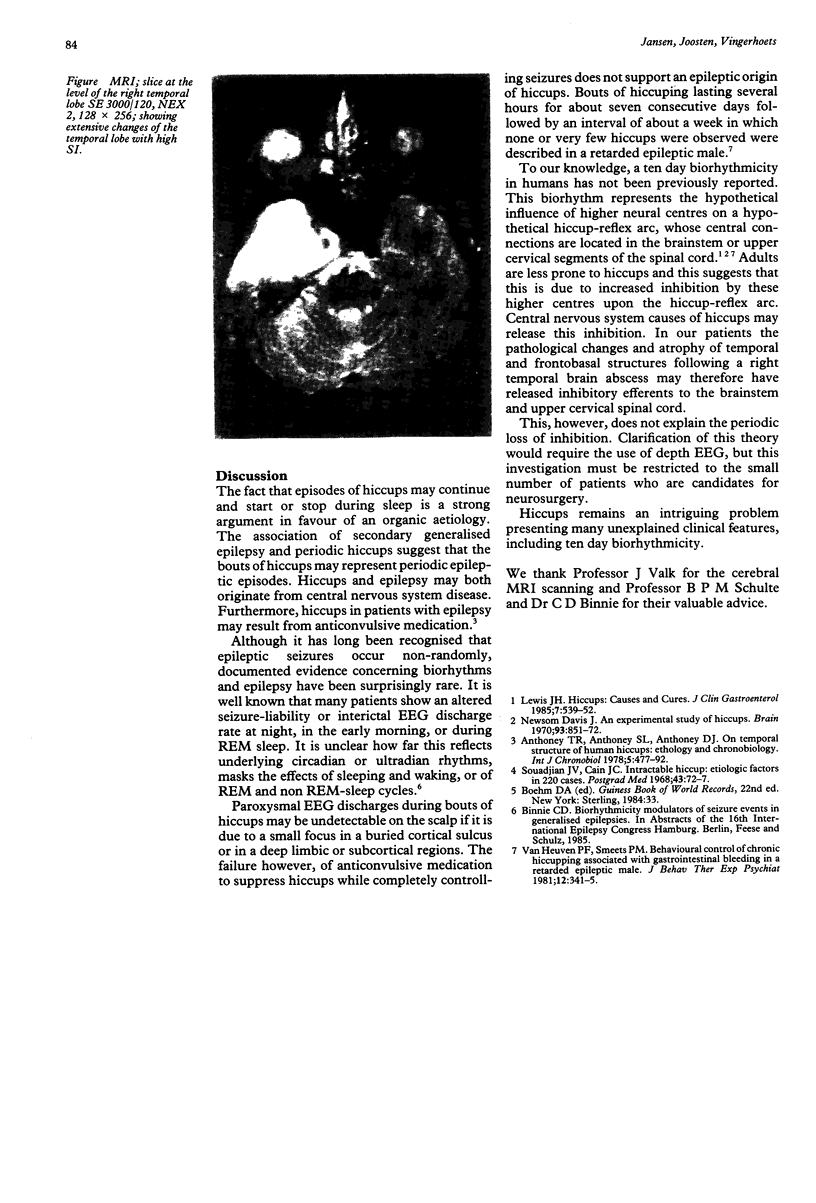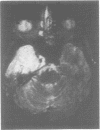Abstract
A case is reported of a patient with periodic persistent hiccups and secondary generalised epilepsy lasting for a period of five years following a right temporal brain abscess. The recurring episodes of hiccups had a ten day rhythmicity and unlike epileptic convulsions were unresponsive to treatment.
Full text
PDF

Images in this article
Selected References
These references are in PubMed. This may not be the complete list of references from this article.
- Anthoney T. R., Anthoney S. L., Anthoney D. J. On temporal structure of human hiccups: ethology and chronobiology. Int J Chronobiol. 1978;5(3):477–492. [PubMed] [Google Scholar]
- Davis J. N. An experimental study of hiccup. Brain. 1970;93(4):851–872. doi: 10.1093/brain/93.4.851. [DOI] [PubMed] [Google Scholar]
- Lewis J. H. Hiccups: causes and cures. J Clin Gastroenterol. 1985 Dec;7(6):539–552. doi: 10.1097/00004836-198512000-00021. [DOI] [PubMed] [Google Scholar]
- Souadjian J. V., Cain J. C. Intractable hiccup. Etiologic factors in 220 cases. Postgrad Med. 1968 Feb;43(2):72–77. doi: 10.1080/00325481.1968.11693139. [DOI] [PubMed] [Google Scholar]
- van Heuven P. F., Smeets P. M. Behavioral control of chronic hiccupping associated with gastrointestinal bleeding in a retarded epileptic male. J Behav Ther Exp Psychiatry. 1981 Dec;12(4):341–345. doi: 10.1016/0005-7916(81)90076-8. [DOI] [PubMed] [Google Scholar]



